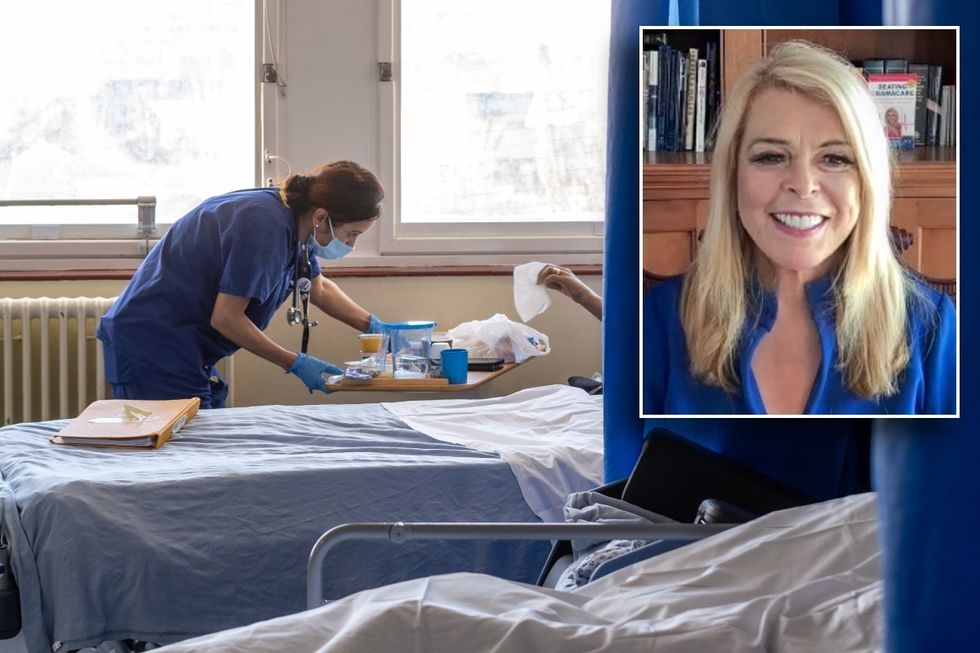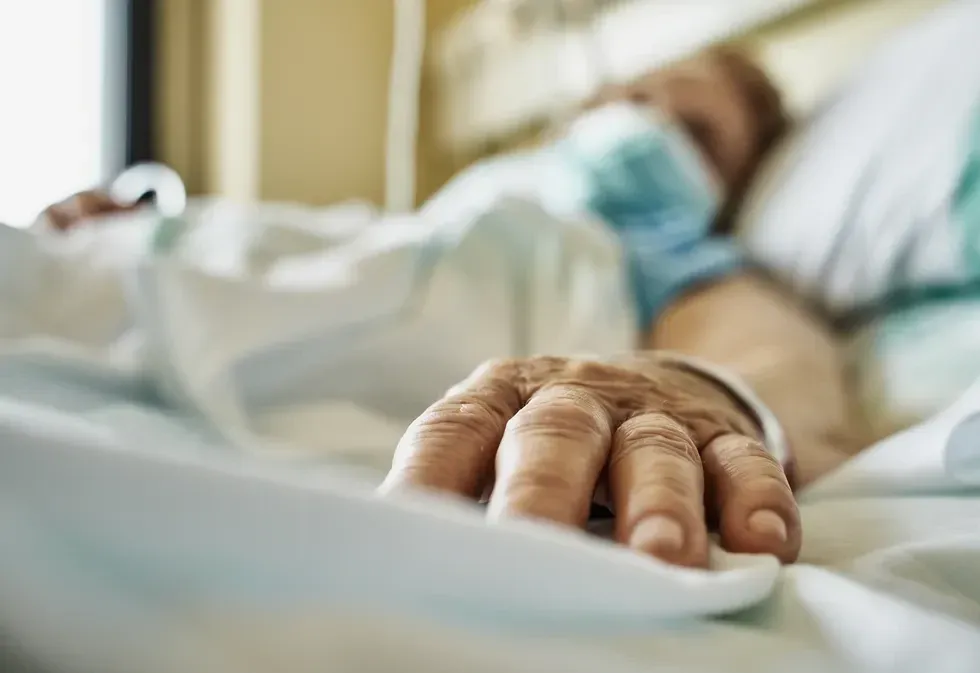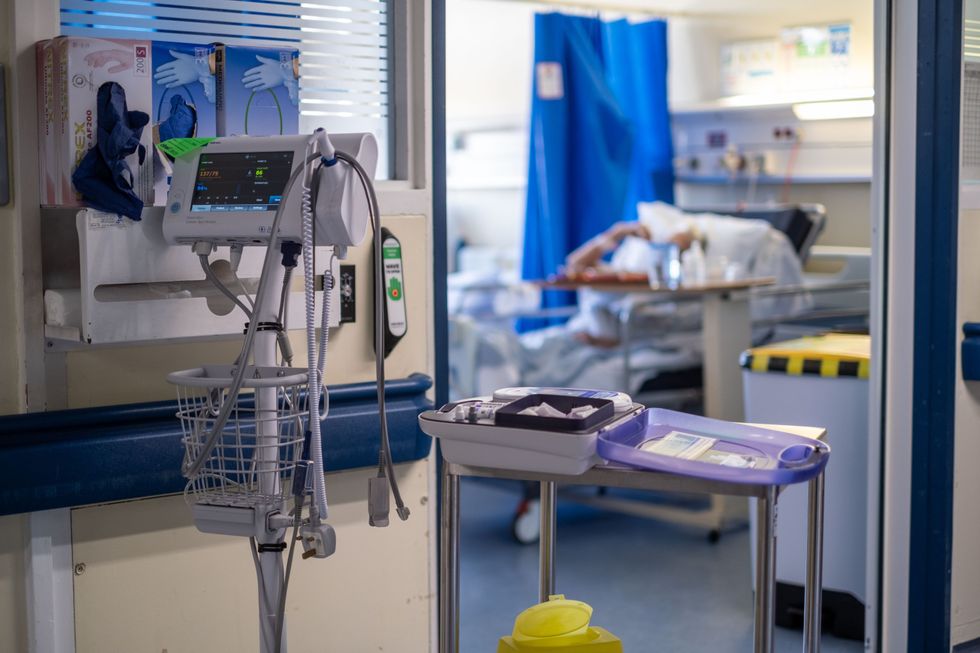The hidden health risk tearing through US hospitals that kills more than 100,000 people each year

The infections are responsible for more deaths in the US than auto accidents, breast cancer and AIDS combined and are the fourth largest killer in America
Don't Miss
Most Read
Latest
A hidden health risk found in American and British hospitals infects millions of people and is responsible for more than 100,000 deaths every year, a former Lieutenant Governor of New York State told GB News.
Hospital-acquired infections (HAI) are infections that patients get while or soon after receiving health care and are the fourth largest killer in the United States, causing more deaths than auto accidents (42,514), breast cancer (42,250) and AIDS (19,310) combined, according to the Committee to Reduce Infection Deaths (RID).
The infections are mostly caused by bad hygiene and improper room cleaning with germs entering the bloodstream through a wound, stomach or lungs.
Speaking to GB News, Betsy McCaughey PhD who founded RID, explained the biggest factor in contracting an HAI.

Betsy McCaughey explains the hidden health risk tearing through US hospitals
|GBNA/PA
“I'm going to start out by asking you a question,” McCaughey told GB News.
“What is the single biggest factor determining who gets a hospital infection? Is it their age? No. Is it the disease that brought them into the hospital? No.
“The single biggest determinant of who gets a hospital infection is what room or what bed they're assigned to.
“That's because if you're assigned to a room or a bed and a previous occupant – not just the immediately preceding occupant, but maybe even two or three weeks before had an infection – your risk of getting that same infection goes way up.”
HAIs are not just an American issue as they are reported to be the most frequently occurring medical adverse event worldwide, with a prevalence of around 7-10 per cent.
THE LATEST GBN AMERICA EXCLUSIVES:
HAIs are the most frequently occurring medical adverse event worldwide
|GETTY IMAGES
In the UK, HAIs are responsible for around 28,500 deaths a year, according to the British Medical Journal and are costing British taxpayers £2.7billion via the NHS.
The infections also account for around 21 per cent of NHS England’s bed capacity due to overstaying patients.
McCaughey explained that in the US, HAIs are costing more than $30.5billion (£23billion) and kill hundreds of thousands of people.
Clostridium difficile (C. diff) infections are some of the most deadly and account for around a third of all HAI deaths (30,000).
The former Lieutenant Governor of New York State continued: “The Columbia School of Nursing right here in New York did a study that showed that if you were placed in a room and the previous occupant had an infection, your risk of getting that infection goes up 583 per cent, almost sixfold.
“And why is that? Because the previous patient was discharged, but their germs weren't.
“Their germs were left on the bed rail, the call button, the TV controls and the privacy curtain in between beds. Literally all the high-touch surfaces in the room.
“And that's a major cause of hospital infections. Inadequate hospital cleaning. Most of these infections are caused by bacteria on surfaces and on medical equipment, on the patient's skin. Very, very little of it is airborne.”

HAI-causing germs can survive on high-touch surfaces for weeks and hospital rooms are often not cleaned thoroughly enough
|PA
Pointing to another study by RID board member Michael Perry which surveyed 1,100 hospital rooms on the US east coast, McCaughey said many surfaces in patient rooms are left “untouched”.
Explaining further on the reasons why many of these areas are not properly cleaned, McCaughey said some blame lies with hospital cleaners.
“They're not adequately trained,” she said, “The turnover is very high.”
“But the lesson was, that if you have to eat your lunch in a hospital room, the safest place to put your sandwich is on the toilet seat.”
Speaking further about the role of RID, the New York Post columnist said: “We want to increase awareness of the dangers of hospital infections and we want to prepare patients and their families before they go into the hospital to do everything they can do to protect themselves from hospital infections.”
McCaughey also encouraged GB News readers and viewers to educate themselves on the health issue and advised that those heading to hospital can use their 15 tips to help reduce their risk of infection.
“We'd like to help you,” she said, “We give you help free of charge because this is a transatlantic problem.”
GB News readers can learn more about RID and their mission at https://hospitalinfection.org/











